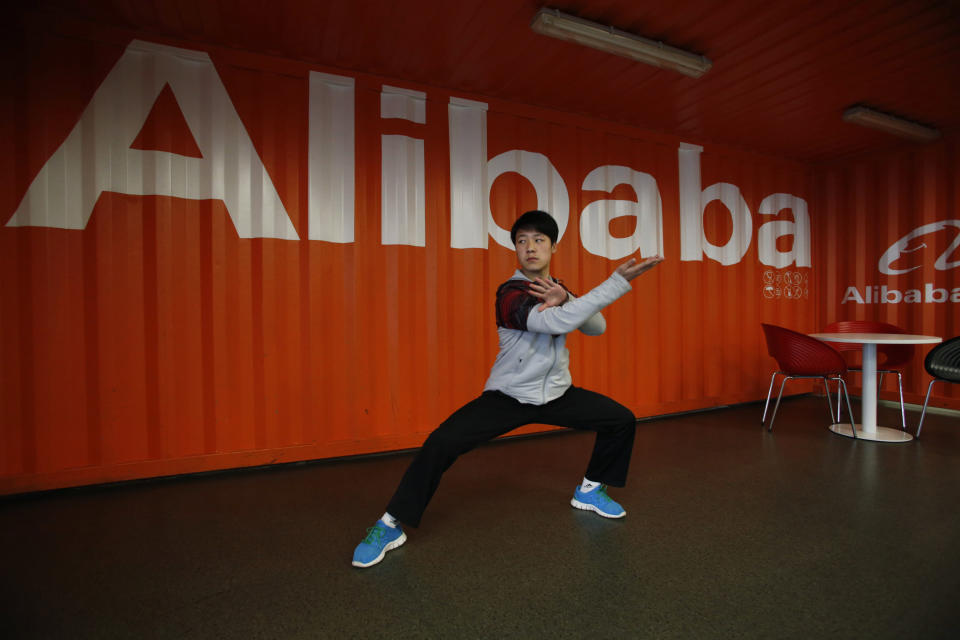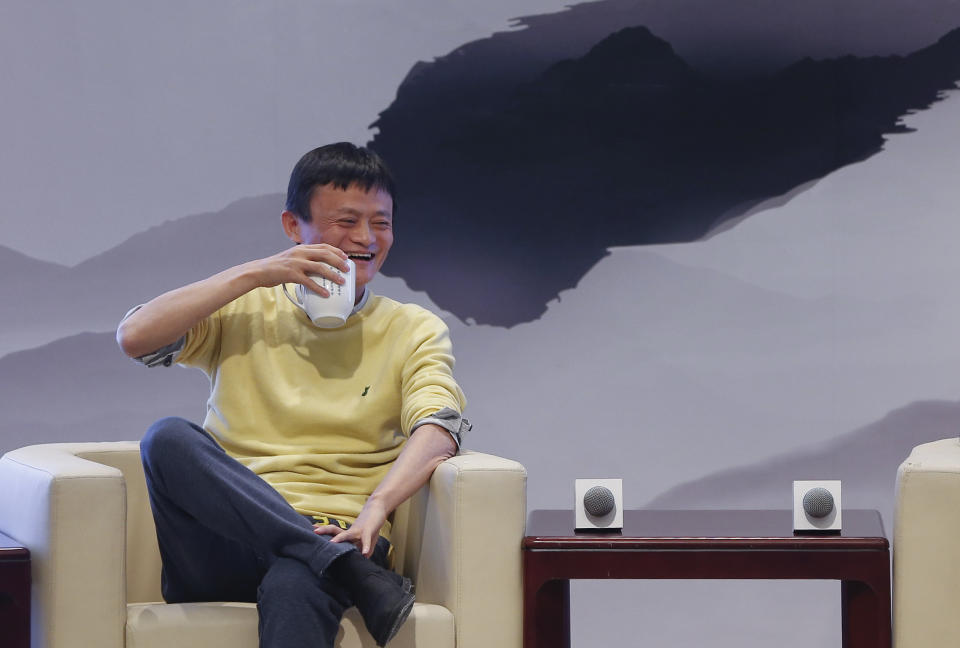China picks owners for 5 new private banks
BEIJING (AP) — Ten companies including Internet giants Alibaba and Tencent have been picked to invest in China's first five privately owned banks, the industry's chief regulator said Tuesday.
The planned banks, part of sweeping reform plans announced last year, will be expected to operate independently and according to market principles, said Shang Fulin, chairman of the China Banking Regulatory Commission. He gave no timetable for when they would open or details of their intended size.
Regulators announced last year Beijing would allow the creation of privately financed banks as part of efforts to make the economy more productive by giving market forces a bigger role.
An overhaul of the state-dominated financial system is expected to be the core of what the ruling Communist Party bills as the most ambitious economic changes since the launch of market-style reform in 1979.
Reform advocates complain state banks hold back the economy by lending mostly to state industry, rather than to entrepreneurs who create its new jobs and wealth. Interest paid on savings is low, effectively forcing Chinese households to subsidize politically favored borrowers.
Premier Li Keqiang, the country's top economic official, promised this week to give market forces a "decisive role" in allocating credit and other resources in hopes of nurturing more sustainable long-term growth.
Each new bank must have at least two private investors, Shang said at a news conference held during the annual meeting of China's legislature. He said preparatory work still was underway.
Alibaba Group is one of the world's biggest e-commerce companies and Tencent Holdings Ltd. is China's most popular online games provider. Both have launched online financial services that have drawn deposits away from banks by paying higher interest.
Critics accuse them of hurting state banks and a commentator for state television called them "financial parasites." But Li, the premier, threw the party's support behind them last week, pledging in an annual policy speech to promote growth of online financial services.
In addition to Alibaba and Tencent, the ruling party newspaper People's Daily said the 10 companies include Wanxiang Group, an auto parts maker; Fosun Group, a conglomerate that owns French tourism company Club Med; and Huabei Group, a real estate developer.
The new institutions will be expected to focus on lending to small- and medium-size companies, Shang said, using the ruling party's term for private business. He said they will be required to have a "living will," or plans to wind up a failed bank, to prevent the burden from falling on taxpayers.
The first banks will be located in Shanghai and the city of Tianjin, east of Beijing, and the southeastern provinces of Guangdong and Zhejiang.
Alibaba plans to partner with Wanxiang to form a bank that will lend to small enterprises, especially those in e-commerce, said a spokesman for Alibaba's payment unit, Zhang Daosheng. He said the companies still are preparing their applications and have few details.
In judging borrowers, Alibaba can draw on its store of data about the more than 300 million users of its business-to-business and business-to-consumer platforms, said Zhang. He said that group's default rate already is lower than those of traditional banks.
Lack of lending by state banks to entrepreneurs has fueled growth of an underground market of high-interest loans. Regulators permitted the market in order to support private business but more recently have tried to tighten control over it after discovering state companies and banks were involved, exposing themselves to potential losses.
In July, regulators scrapped controls on lending rates. That will allow borrowers with strong credit records to negotiate cheaper loans, lowering their costs and spurring economic growth.
Also Tuesday, the central bank governor said Beijing is likely to ease controls on interest rates paid on savings within two years. That would allow banks to compete for deposits and put more money in Chinese families' pockets.
"Liberalization of deposit rates, this should be the last step in interest rate marketization," said Zhou Xiaochuan. "I personally believe it is very possible to realize this within one to two years."
___
AP researcher Fu Ting in Shanghai contributed.


